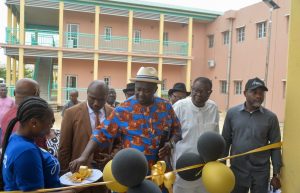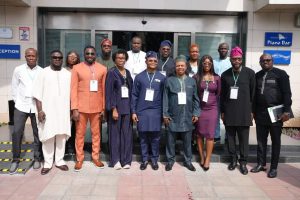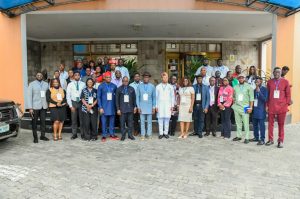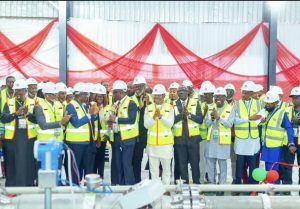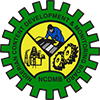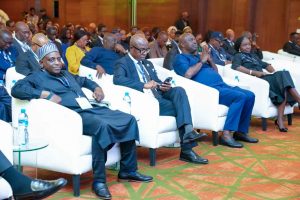 The Nigerian oil and gas industry needs to modernize its human capacity development frameworks and strategies to meet technological changes and emerging trends in our industry and society.
The Nigerian oil and gas industry needs to modernize its human capacity development frameworks and strategies to meet technological changes and emerging trends in our industry and society.
The Executive Secretary, Nigerian Content Development and Monitoring Board (NCDMB), Engr. Simbi Kesiye Wabote gave the advice recently at the 2019 human capacity development workshop organised by the Board in Port Harcourt.
He remarked that massive technological changes were taking place in the industry, including the operation of FPSOs with zero personnel on Board, and robots carrying out underwater inspections and repairs.
He added that “the Board wants to champion the industry readiness for change by implementing the human capacity development initiatives from this moment. We need to sow the seeds today so that we will reap the benefits 10-years from now.”
He sought for the collaboration of the stakeholders, noting that the Board cannot do it alone.
According to the Executive Secretary, “one of the areas to address is the need to modify our training curriculum. The design, mode of delivery, and the desired outcome need to be looked into. The key outcomes should be employability and entrepreneurial skills. It should be such that the training will impact skills that employers are in dire need of.
“It should also be possible for the trainee to choose to be an entrepreneur based on the knowledge acquired at our project-based or direct-intervention trainings.”
He also harped on the need to provide learning infrastructure for the critical skill areas, a good example being the Board’s partnership with Aker Solution in the development of Subsea Learning Center in Yenagoa. He stated that “we need something similar for Instrumentation, Control and Automation. We look forward to delivery of our collaboration with PTDF on the completion and utilisation of the Skill Acquisition Center here in Port Harcourt.”
Wabote also charged the industry to re-ignite the passion and respect for Vocational Education in the country and accord respect to vocational skills such as scaffolders, welders, carpenters, and the rest.
Giving a report on NCDMB’s performance in human capacity building, the Executive Secretary said the Board have so far delivered close to 9million training manhours across the project-based and direct intervention training.
He also confirmed that NCDMB have put in place 60-20-20 training model, in which 60 per cent of the Board’s and industry’s training resources and efforts will be devoted to providing young Nigerians with specialized skills they need to secure employment.
He added that “under the new strategy, beneficiaries are provided with qualitative skills and international certifications that will position them for employment within and outside Nigeria. Twenty percent of the training is geared towards improvement of the productivity of already employed personnel while another 20 percent of spend on training is used for trainings on soft skills.”
He reported that a key outcome of the Board’s HCD interventions is that Nigerians now successfully operate fields divested by multi-nationals. “We have indigenous companies with world-class capacities. We regularly export part of the skills acquired outside the shores of the land.”
Discover more from Nigerian Content Development & Monitoring Board
Subscribe to get the latest posts sent to your email.

